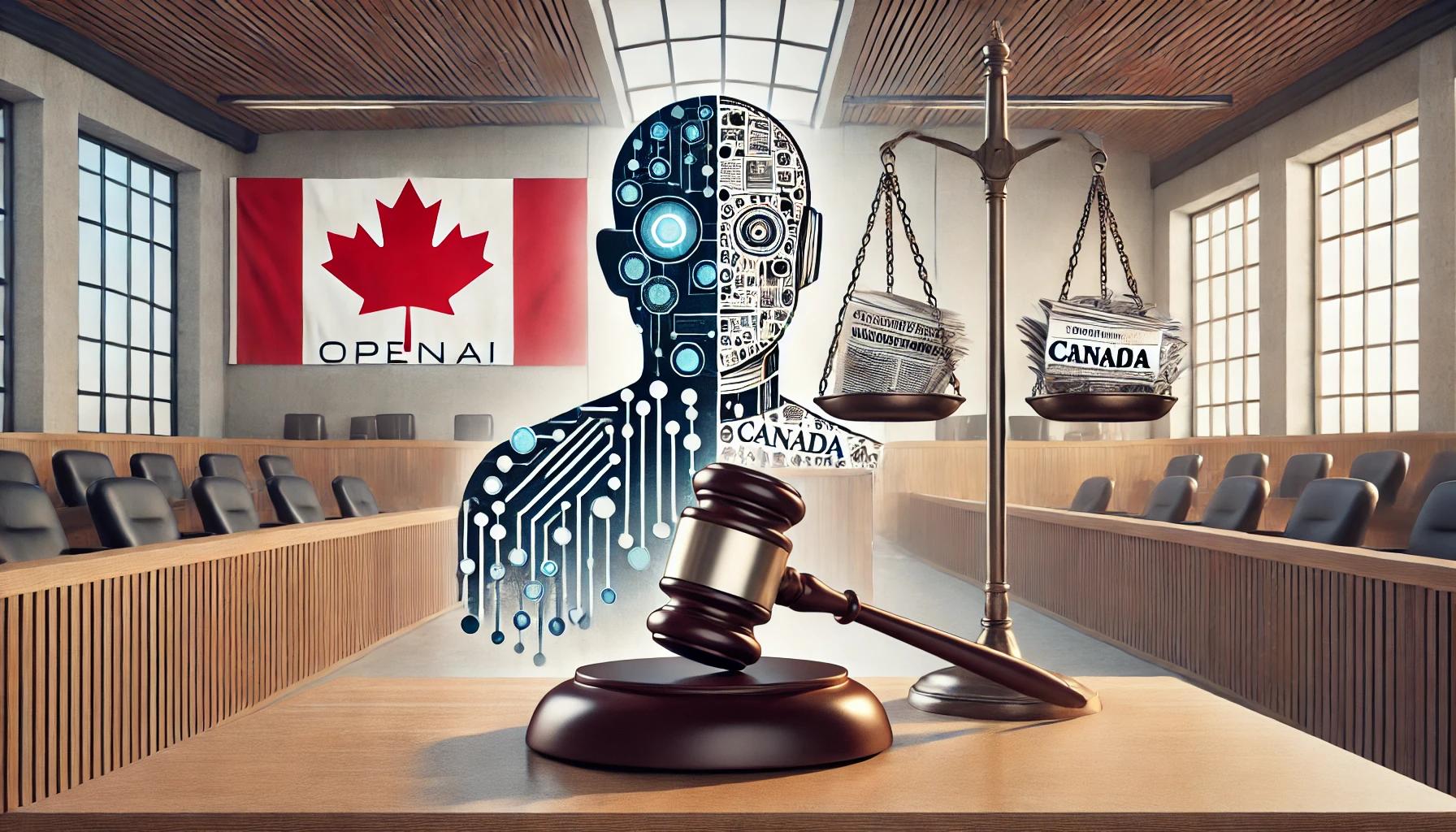A coalition of prominent Canadian media organizations, including the National Post, Toronto Star, The Globe and Mail, The Canadian Press, and CBC/Radio-Canada, has filed a lawsuit against OpenAI. The plaintiffs accuse the AI giant of "inappropriate and illegal" use of their journalistic content to train its GPT models without permission or compensation, alleging copyright infringement. This legal action highlights the growing concerns around the use of copyrighted material by AI systems and their potential to disrupt traditional industries like journalism.
The Claims of the Media Outlets
The lawsuit claims that OpenAI’s models have been trained using vast amounts of journalistic content from these outlets without proper authorization or payment. The plaintiffs argue that this constitutes a violation of their intellectual property rights, asserting that their articles have been used to teach OpenAI’s algorithms without consent. The media organizations are seeking damages and an injunction to prevent OpenAI from further using their articles for AI training. The plaintiffs have proposed that OpenAI may owe them up to C$20,000 per article used, based on copyright infringement.
The action comes amid increasing scrutiny of AI companies and the way they utilize publicly available content to train their models, with journalists and content creators increasingly concerned about how their work is being used without compensation.
OpenAI’s Defense: The "Fair Use" Argument
In response to the lawsuit, OpenAI has defended its actions by invoking the "fair use" doctrine. Under copyright law, fair use allows limited use of copyrighted material without permission for specific purposes such as criticism, commentary, research, or education. OpenAI argues that the use of publicly available content to train its models falls within the scope of fair use and does not require the permission of content owners.
OpenAI’s defense also mirrors similar arguments made by AI companies in the U.S., where media outlets like The New York Times have filed lawsuits over the use of their content in training AI models. The issue of fair use versus copyright protection is central to the ongoing debate about the legality and ethics of AI training practices.
The Broader Impact on Media and AI Industry Practices
This lawsuit is part of a broader conversation around the intersection of AI technology and intellectual property. Several major media companies, such as The Associated Press and The Atlantic, have entered into licensing agreements with OpenAI, granting permission for the use of their content in AI training in exchange for compensation. These agreements highlight the potential for collaboration between traditional media and AI firms to address concerns over content usage.
The lawsuit also raises questions about how AI companies can navigate the rights of content creators while continuing to develop and refine their models. OpenAI has stated its commitment to working with news publishers and developing mechanisms for publishers to opt out of having their content used for AI training. However, this legal battle underscores the challenges that lie ahead in balancing innovation with copyright protection.
Looking Ahead: AI and Media Relations
As AI technology continues to advance and become more integrated into various industries, it is likely that the relationship between AI companies and content creators will become more complex. While some media organizations may see AI as a potential source of collaboration and new revenue, others, like those involved in the current lawsuit, are pushing for clearer regulations and compensation structures.
The outcome of this legal case could have significant implications for the way AI firms like OpenAI interact with the media and other content producers in the future. As the legal landscape around AI training and copyright evolves, it will be essential to establish fair practices that protect intellectual property while fostering innovation and technological progress.







